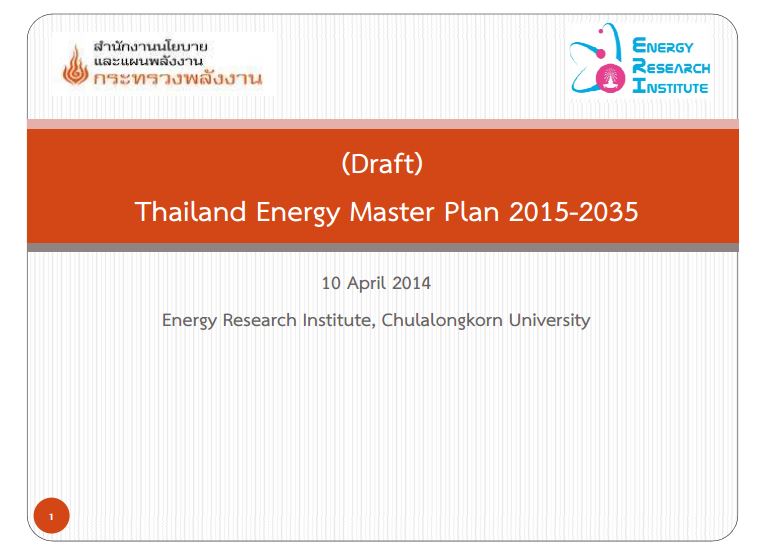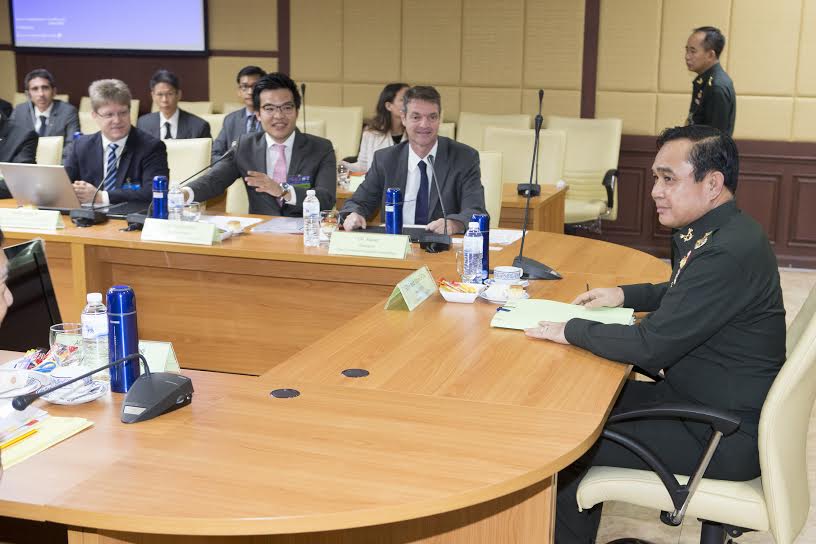Business Continuity Planning
Landmark Hotel SukhumvitInvestment Opportunities in the European Union
Royal Orchid Sheraton HotelOverview Launch of the Thai-European Business Dialogue to foster collaboration between the two regions. Specifically aimed at a target audience of Thai and European investors. Exhibition of European trade and investment promotion agencies. An exclusive presentation of selected European countries. Experience sharing by existing Thai investors in Europe
World Class Automotive Supplier: Supply Chain Management
Amata Springs Country Club ChonburiThai-EU FTA Negotiation
Brussels , BelgiumWorkshop on Thailand Energy Roadmap 2015-2035
Energy Research Institute Chulalongkorn UniversityDear Colleagues, Thailand's demand for final energy will double within the next 25 years if consumption continues at the current rate, and with its limited resources, the Kingdom will likely remain a net energy importer to meet its increasing demands, according to a forecast by the Asia Pacific Energy Research Center. "Final energy" is that available to the user after conversion from primary energy sources such as petroleum, nuclear, wind or the sun. Electricity is a form of final energy. "A large percentage of 'other' sector demand will be for electricity in the commercial sub-sector and for oil in the agricultural sub-sector," the report said. "The likely increase in home-appliance ownership, and its impact on residential demand, varies between types of home appliance. In 2010, air-conditioners were owned by only 15.6 per cent of the households, which is a long way below saturation level. In comparison, television and fan ownership levels are much higher: 96 per cent of households own a television and 97 per cent own fans." In 2035, industrial and non-energy-sector use together will account for 48 per cent of the total final energy demand, while transport will account for 27 per cent and "other" sector demand for 25 per cent. Agenda 10.00 – 11.00 Presentation on Thailand Energy Roadmap 2015–2035 11.00 – 12.00 Q & A and Discussion 12.00 Light Lunch Thailand's energy conservation and efficiency campaign through various measures, including building codes and minimum efficiency performance standards for appliances, is expected to moderate electricity demand in this sector. The domestic transport sector's energy demand will be affected by increasing vehicle numbers (which are still far below saturation level) and the increase in vehicle-kilometres travelled. Demand will be moderated by the gradual shift in transport modes in urban centres (to rapid-transit systems) and a modest increase in the use of biofuels and alternative vehicles. The light-vehicle fleet in Thailand will be more diverse by 2035. Hybrids and plug-in vehicles will account for 4 per cent of the fleet, while autos running on liquefied petroleum gas and natural gas for vehicles will account for 7 per cent. TEBA members are invited to share the latest findings and provide recommendations to Energy Policy and Planning Office of Ministry of Energy and Energy Research Institute of Chulalongkorn University as they are currently drafting Thailand’s 20-year Energy roadmap (2015-2035).
WCAS: Automotive Mission to Europe
Germany , GermanyBusiness Continuity – Natural Disaster
Landmark Hotel SukhumvitSurviving under Thailand Political Unrest
The Grande Centre Point Hotel Terminal 21TEBA Members First to Meet New Prime Minister
Bangkok , ThailandOn 27 August TEBA members became the first business delegation to meet with General Prayuth Chan-Ocha following his royal endorsement as Prime Minister. The morning meeting allowed TEBA’s member companies to directly put forward their recommendations for economic and business reforms to the new Prime Minister at a time when the government is considering nationwide reforms. Proposals from the TEBA members included modernising customs laws to ensure greater transparency, amending laws to facilitate the government’s ability to negotiate international economic agreements, encouraging greater consultation of stakeholders in the EU-Thai FTA negotiations, greater transparency in public procurement processes and reform of the Foreign Business Act. Other suggestions from TEBA members included issues related to stimulating the economy such as developing a new strategy for promoting trade and investment with Europe, the offering of investment privileges to new investors and organising activities to build the image of Thailand among European investors. In terms of developing a long-term industrial development strategy for Thailand, TEBA members suggested the government should support building high value-added manufacturing, greater technology transfer from Europe to Thailand and promote more investment from Thai companies in Europe. TEBA also suggested that it was willing to develop a mechanism for greater cooperation between the public and private sectors, particularly in the automotive, aerospace, pharmaceutical and logistics industries. The meeting was very positive with the new Prime Minister being very open to suggestions from TEBA’s members. It is hoped that this will be the start of a regular and ongoing dialogue between TEBA members and the new government.


